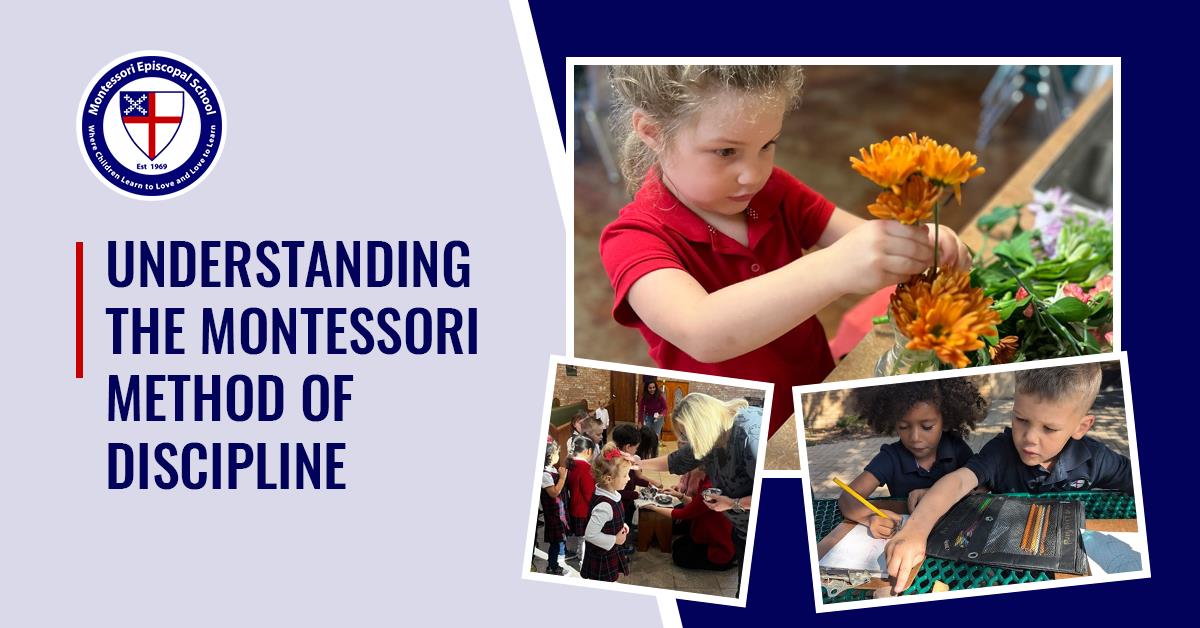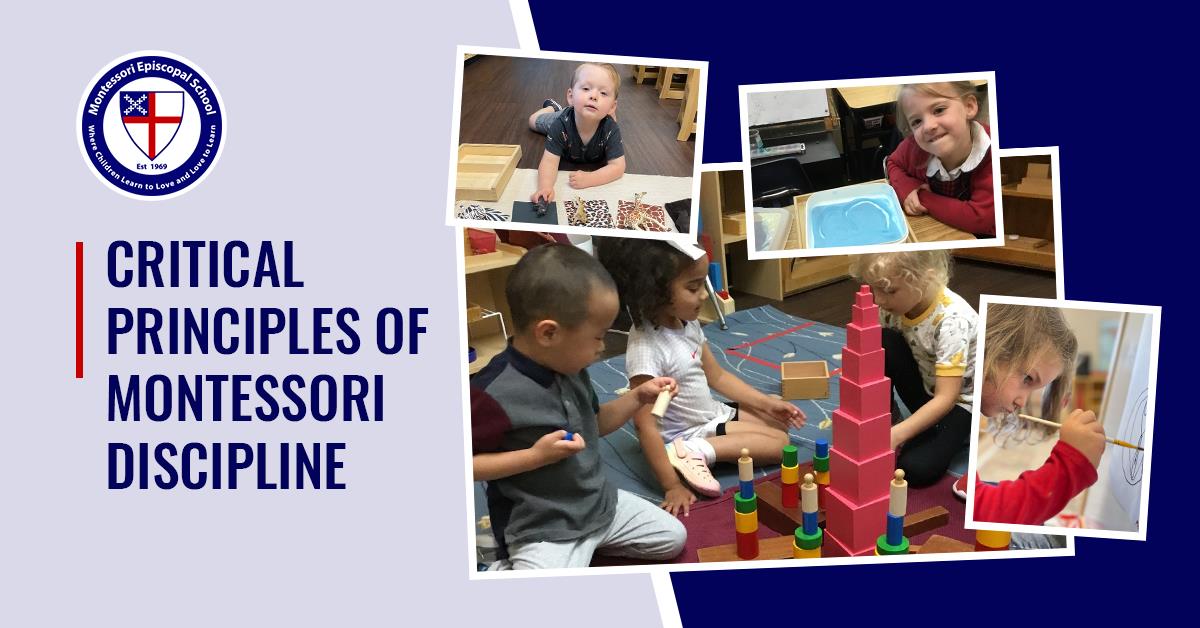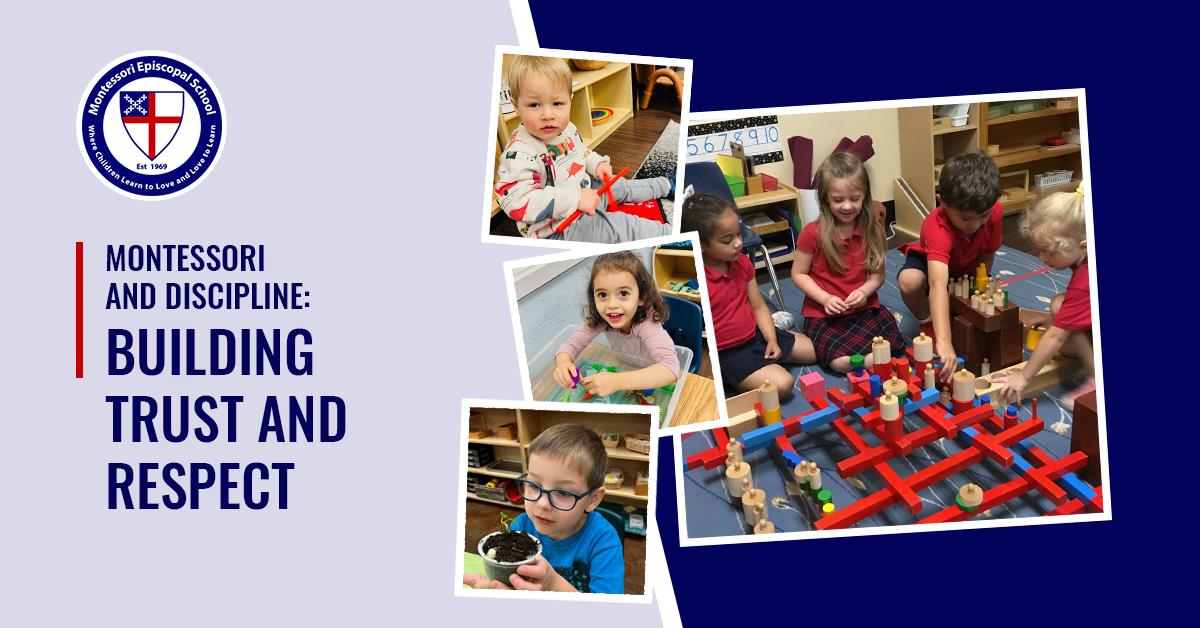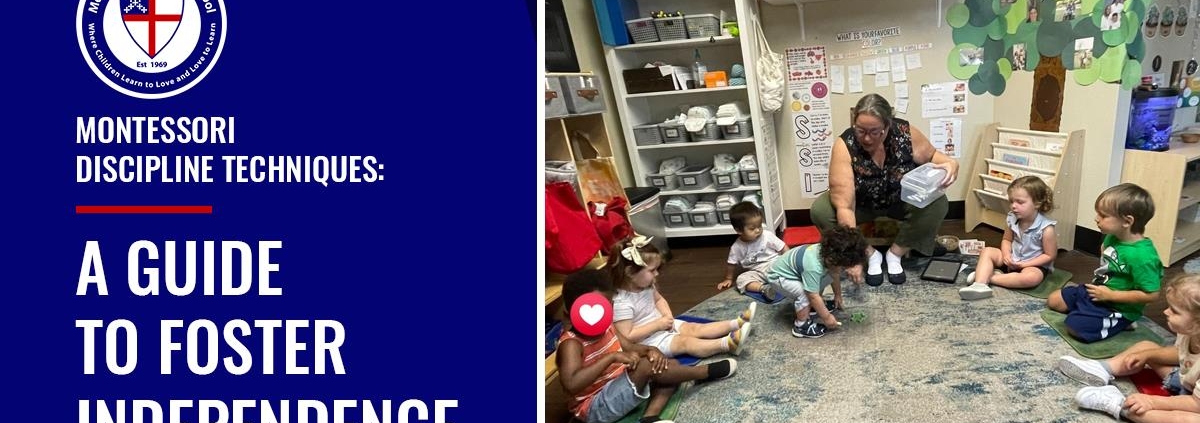Montessori Discipline Techniques: A Guide To Foster Independence
Montessori discipline techniques encourage children to develop self-discipline, independence, and a deep sense of personal responsibility. Rooted in respect and understanding, these methods focus on guiding rather than controlling behavior.
By nurturing a child’s curiosity and promoting positive reinforcement, Montessori discipline allows children to learn appropriate behaviors through observation, problem-solving, and natural consequences. We’ll explore how Montessori practices create a harmonious balance of freedom and boundaries, fostering self-reliance and a solid moral compass from an early age.
Understanding the Montessori Method of Discipline

The Montessori method of discipline is founded on the belief that children develop discipline within themselves rather than having it imposed upon them. This approach emphasizes respect, freedom within limits, and intrinsic motivation. Unlike traditional methods that may rely on external rewards or punishments, Montessori discipline nurtures children’s self-regulation, self-awareness, and self-control.
Key Components of the Montessori Method of Discipline
- Respect and Dignity: Every child is treated with respect and dignity, and their thoughts and feelings are acknowledged as valid. Montessori educators model respectful behavior and communicate clearly to help children understand expectations and boundaries.
- Freedom within Limits: Children can explore and choose their activities within a structured environment with clear boundaries. This freedom fosters independence, while boundaries ensure safety and respect for others.
- Intrinsic Motivation: Montessori discipline encourages children to act appropriately because it feels right to them, not because they want a reward or fear punishment. Through positive reinforcement, children learn to value their actions and develop an internal sense of discipline.
How the Montessori Method Differs from Traditional Discipline
In traditional settings, discipline often focuses on controlling a child’s behavior through external means like time-outs or loss of privileges. While these strategies may be effective in the short term, they do not promote long-lasting behavioral change or self-regulation.
The Montessori approach, however, believes that proper discipline arises from within. By offering children choices and natural consequences, the Montessori method helps children understand the impact of their actions on themselves and others.
Benefits of Montessori Discipline
- Encourages Problem Solving: Children learn to resolve conflicts and make decisions independently, enhancing their problem-solving skills.
- Builds Self-Discipline: As children navigate freedom within limits, they gradually develop self-discipline, making thoughtful decisions even without authority figures.
- Promotes Emotional Growth: Montessori teaches children to identify and manage emotions. They learn to express themselves healthily, fostering emotional intelligence.
Ultimately, the Montessori method of discipline aims to guide children toward becoming self-disciplined, responsible, and respectful individuals. This approach nurtures a child’s growth by creating a setting where they can learn, make mistakes, and develop into confident and compassionate individuals.
Critical Principles of Montessori Discipline

Montessori discipline is rooted in respect, empathy, and the development of self-regulation. By emphasizing positive interactions and creating an environment where children are empowered to make decisions, the Montessori approach helps foster independence and intrinsic motivation. Below are some of the essential principles that guide the Montessori discipline.
Natural Consequences
Montessori educators allow children to experience the natural consequences of their actions, helping them understand responsibility meaningfully.
- Spilling water: The child is asked to clean it up, teaching accountability.
- Forgetting materials: Children learn to manage their belongings by understanding how it impacts their day.
Natural consequences are connected to the child’s actions, reinforcing learning without punishment.
Modeling Appropriate Behavior
Children learn best through observation. Montessori teachers and parents act as role models, demonstrating calm, respectful interactions.
- Using polite language: Teachers say “please” and “thank you” when interacting with children.
- Handling conflicts calmly: Educators model calmness and problem-solving skills, showing children how to handle disagreements constructively.
This principle helps children develop similar behaviors, shaping their social interactions in the classroom and at home.
Consistency and Clear Expectations
Children thrive in settings where expectations are clear and consistent. In Montessori settings, rules and routines are established to provide structure and stability.
- Classroom routines: Consistent schedules and rules help children understand what is expected of them.
- Behavioral expectations: Clear guidelines, such as respecting others’ space, are consistently reinforced.
This creates a sense of security and predictability, allowing children to feel confident and supported.
Encouraging Independence and Problem-Solving
Montessori discipline encourages children to resolve their issues rather than rely on adults for solutions. Teachers guide children through conflict resolution by facilitating discussions and prompting critical thinking.
- Discussing feelings: Children are asked to share their emotions and listen to their peers.
- Finding solutions together: Educators encourage children to brainstorm solutions collaboratively.
This approach strengthens problem-solving skills and fosters empathy and respect for others.
Positive Reinforcement and Grace
Montessori discipline celebrates effort and persistence, focusing on positive reinforcement. Mistakes are seen as learning chances, and children are encouraged to try again without fear of judgment.
- Praising effort: Teachers acknowledge hard work, saying, “I see you worked very hard on this.”
- Emphasizing grace: Children are guided to understand that making mistakes is part of learning.
By following these principles, Montessori discipline supports a child’s emotional and social growth, helping them become self-regulated, respectful, and empathetic individuals.
Montessori and Discipline: Building Trust and Respect

In the Montessori approach, discipline is more than managing behavior—it’s about building a solid foundation of trust and respect between children and adults. By establishing relationships based on mutual understanding and empathy, Montessori educators and parents create an environment where children feel valued, heard, and safe to express themselves.
Creating a Trusting Relationship
Montessori educators believe children must feel secure and trusted before developing self-discipline. Trust is established through consistent and respectful interactions and the freedom to explore and make decisions.
- Respectful Communication: Educators speak to children at eye level and use a calm tone, ensuring their words convey understanding and empathy.
- Encouraging Autonomy: Allowing children to choose activities and work at their pace fosters trust in their abilities.
When children feel trusted and understood, they are likelier to cooperate, listen, and develop a positive relationship with discipline.
Establishing Respect through Boundaries
Respect is nurtured in Montessori classrooms through clearly defined boundaries that are consistently reinforced. Children are encouraged to respect themselves, others, and their environment by understanding the impact of their actions.
- Personal Space: Children learn to respect others’ personal space and belongings, promoting harmony in group settings.
- Respecting Materials: Children are taught to handle materials carefully, that each item has a purpose, and that it should be used properly.
These boundaries are not imposed through harsh rules but are gently reinforced to help children understand why respect is essential in maintaining a peaceful environment.
Encouraging Empathy and Understanding
Montessori discipline also cultivates empathy by encouraging children to see things from others’ perspectives. Teachers guide children to recognize and appreciate the feelings and needs of those around them.
- Conflict Resolution: Children are asked to express their feelings and listen to their peers when conflicts arise, promoting empathy and problem-solving skills.
- Modeling Kindness: Educators model kind behavior, showing children how to interact with others caring and respectful.
This approach ensures that discipline is not about authority or punishment but understanding and connection.
Positive Reinforcement and Natural Consequences
In the Montessori approach, discipline is viewed as guiding children toward understanding and self-regulation rather than enforcing compliance. A key element in this philosophy is positive reinforcement and natural consequences. These strategies promote good behavior and encourage children to take ownership of their actions, making discipline a positive learning experience.
Positive Reinforcement: Celebrating Effort and Achievement
Positive reinforcement in Montessori education focuses on acknowledging a child’s effort and perseverance rather than solely rewarding outcomes. This approach helps children feel proud of their hard work and fosters intrinsic motivation.
- Verbal Affirmation: Teachers use phrases like “I see how focused you were on your work” or “You showed a lot of patience” to highlight specific behaviors.
- Encouragement Over Praise: Instead of generic praise like “Good job,” Montessori educators focus on descriptive language that acknowledges effort, helping children recognize their accomplishments without needing external approval.
Positive reinforcement builds a child’s self-esteem and encourages persistence in efforts by celebrating the process rather than the result.
Implementing Natural Consequences: Learning Through Experience
Natural consequences allow peers to learn from their actions in a way directly related to what they did. This approach helps children see the cause-and-effect relationship between their behavior and its outcomes, making lessons more impactful and memorable.
- Spilled Milk Example: If a child spills milk, they are encouraged to clean it up. This consequence directly relates to the action and helps the child understand the importance of being careful.
- Interpersonal Interactions: If a child speaks unkindly to a peer, they are guided to reflect on how their words made the other person feel and encouraged to make amends.
Natural consequences are never punitive; they must be logical extensions of a child’s actions, providing meaningful learning experiences.
Benefits of Combining Positive Reinforcement and Natural Consequences
- Encourages Self-Discipline: Children learn to take responsibility for their actions and understand the value of positive behavior.
- Fosters Independence: By handling the outcomes of their behavior, children become more independent and confident in their decision-making.
- Promotes Emotional Intelligence: Positive reinforcement and natural consequences guide children in understanding their emotions and the emotions of others.
Through these strategies, Montessori discipline helps children develop a deep sense of responsibility, empathy, and self-control, laying the groundwork for a lifetime of favorable habits and attitudes.
Conclusion
In the Montessori philosophy, discipline isn’t about control—it’s about guiding children to become respectful, self-disciplined, and compassionate individuals. Montessori discipline nurtures a child’s ability to make thoughtful decisions and develop strong moral values by embracing principles like natural consequences, positive reinforcement, and a respectful environment. The emphasis on trust, empathy, and independence lays the foundation for lifelong learning and positive social interactions.
Ready to see the Montessori difference in action? Reach out to Montessori Episcopal School at (972) 895-9050 or visit our contact page to learn more!




Leave a Reply
Want to join the discussion?Feel free to contribute!